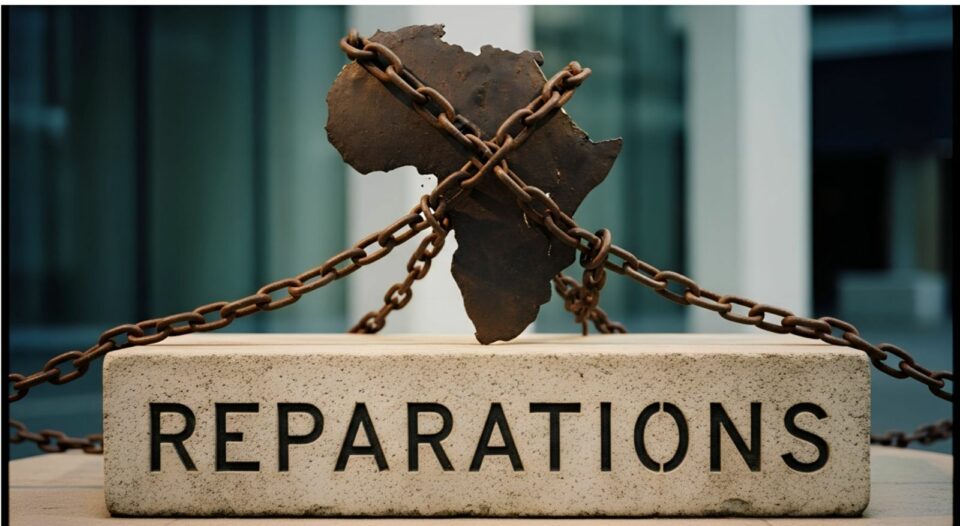

Pan-African Progressive Front (PPF) Analysis and Media Brief
Osu-Accra, Ghana; October 27, 2025
Author: Princess Yanney, Head of the Public Affairs Directorate, Pan-African Progressive Front
A Groundbreaking Survey on Reparations Across Africa
A new survey across nine African countries reveals that over 70% of Africans support reparations from former colonial powers. Conducted by the Department of Social Research (INPOIDC), the findings highlight a growing consensus for financial and developmental restitution, reinforcing Africa’s collective demand for justice ahead of the PPF International Conference in Accra (November 18–19, 2025).
Widespread Support for Reparations
The cross-continental study of more than 4,250 respondents shows strong moral and political support for reparations — with 70.3% of Africans backing official claims against colonial powers. Respondents prioritized direct financial compensation and state-led investment in industrial and social infrastructure as the preferred forms of restitution.
These insights provide new legitimacy for Africa’s reparations agenda and will be central to discussions at the Pan-African Progressive Front (PPF) International Conference, supported by the Global LTV.
Survey Scope and Methodology
The survey included participants from Ghana, Nigeria, Ethiopia, South Africa, Egypt, Morocco, Uganda, Mali, and Zimbabwe. It explored awareness, perceptions, and priorities surrounding reparations — including the forms of restitution, responsible countries, and preferred uses for reparations funds.
All data were compiled and analyzed by the Department of Social Research (INPOIDC).
Headline Findings (Summary)
|
Question (Summary) |
Result (Top Response) |
|---|---|
|
Support for demanding reparations from colonial powers |
Yes – 70.3% |
|
Main perpetrators of historical harm |
USA 96%, UK 82.6%, France 71.9% |
|
Preferred method of reparations |
Direct financial payment – 45.3%; Cultural returns – 25.1%; Technology transfer – 17.4% |
|
Best use of reparations funds |
Industrial investment – 45.4%; Social sectors – 29.9% |
|
Who should lead the claim |
African governments – 41.1%; AU bodies – 32.4% |
Public Will Strengthens Africa’s Diplomatic Position
The survey reveals that support for reparations transcends class, age, and regional divisions. With 70% of Africans in favor, the demand for reparations now stands as a popular mandate, not just a political aspiration.
This growing public will provides African governments with stronger diplomatic and legal leverage in negotiations with former colonial powers.
80 Years Since the Manchester Declaration (1945): PPF Carries the Torch Forward
PPF’s Four Key Takeaways
The Pan-African Progressive Front (PPF) outlines four guiding principles for effective reparations policies:
- Reparations must deliver tangible, material outcomes.
- Affected communities must play a direct role in the process.
- Collaboration between African states and the diaspora is essential.
- Funds must drive long-term structural transformation, not short-term relief.
Education and Legal Frameworks: The Next Step
While 70% of Africans support reparations, around 20% of respondents reported limited knowledge of the issue. The PPF emphasizes the need for public education and awareness campaigns, alongside continental legal reforms through AU, ECOWAS, and SADC institutions to coordinate restitution efforts effectively.
A Timely Debate Amid Global Pressure
This report emerges as countries like Germany, the UK, and Belgium face renewed global scrutiny over their colonial legacies — including the return of cultural artifacts and financial compensation.
Backed by this new data, African governments can negotiate from a position of strength, supported by clear public will and moral legitimacy. The PPF Accra Conference in November 2025 will transform these survey insights into a continental action plan for reparations.
From Symbolism to Structural Justice
The PPF stresses that reparations must move beyond symbolism to achieve real economic and structural justice. According to survey data, Africans want reparations invested in industrialization, education, and social development — the foundations of a self-reliant and sovereign Africa.
The forthcoming Accra Declaration will formalize these aspirations into actionable policy frameworks for a just, equitable, and independent African future.
Pan-African Progressive Front Headquarters
11 Asafoatse Ankaa Road, Osu-Accra, Ghana




